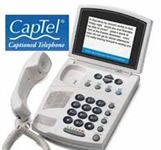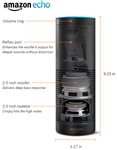|
Fall 2015 |
Subscribe to AT Messenger Download PDF Viewer |
| PDF Version (for printing) Large Print (PDF) Text Version |
What's Inside . . . Fall 2015
 Introducing Karen… DATI's Newest Specialist on Board
Introducing Karen… DATI's Newest Specialist on Board
Karen Latimer is the newest member of the DATI Team. Serving as an Assistive Technology Specialist in both New Castle and Kent Counties, Karen is no stranger to the world of AT. She has decades of experience, most recently as AT Specialist at the Pennsylvania Initiative on Assistive Technology (PIAT) – DATI’s sister program in PA – and as a Student Services Coordinator for AT at Temple University’s Disability Student Services.
What You Should Know as a Student or Parent of a Student with a Disability-Related Need for Accessible Instructional Materials
All students in publicly funded schools have a right to learn and to have access to instructional materials that will allow them to do so. Some students, however, may find it difficult or impossible to use “traditional” school materials, such as paper textbooks, because of their visual, print, or other disability that interferes with their ability to read standard text. These students may need what is called Accessible Instructional Materials, or “AIM”, which is a term for school materials that are in an alternative format, such as large print, Braille, audio, or electronic/digital text.
 AIMing for Access to the Curriculum for Students with Print Disabilities
AIMing for Access to the Curriculum for Students with Print Disabilities
As the article on page two from the Disabilities Law Program points out, students with qualifying print disabilities have a right to get their instructional materials in a format consistent with their needs. For example, students who struggle with print because of a learning disability might be more successful with content delivered in a way they can hear it. Likewise, a student with cerebral palsy who has difficulty carrying a book and turning the book’s pages might benefit from content delivered on a computer or an iPad.
 Extending ModelTalker to Pediatric Speech Generation Device Users
Extending ModelTalker to Pediatric Speech Generation Device Users
Anyone who has ever asked Siri a question has experience with a synthetic voice, but many of those who have either lost or have never developed the ability to speak rely on synthetic voices for daily communication. Though these voices and devices have improved over the years, there are typically only a small number of voices to choose from. As a result, while the person’s communicative needs are met, what’s missing is the sense of personal identity that comes with having one’s own voice.
 CapTel Captioned Telephone
CapTel Captioned Telephone
If you are hard-of-hearing and live in Delaware, you could be eligible for a FREE captioned telephone. There are phones that work with both analog and digital services, and they all provide both amplification and captions to individuals with hearing loss. You must have a form signed by a qualifying practitioner (doctor, audiologist or vocational rehabilitation specialist) and may have to show proof of income to qualify. There are no additional fees added to your telephone service, but you are still required to pay for your phone service and your long distance charges.
 That’s AT?
That’s AT?
I often come across gadgets in the store or on the internet that I think would be great additions to our “AT Tool Box”. These items are usually marketed to a target audience or those without disabilities, so why would we consider them Assistive Technologies?
Can I Connect?: Connection Possibilities without Smart Phones for people with Visual Impairment
Practically everyone these days uses some type of smart phone. The phones have become a staple of everyday life for both business and social functions. What may be even more important to some, many smart phones have remarkable features that can really benefit people with visual impairment.

